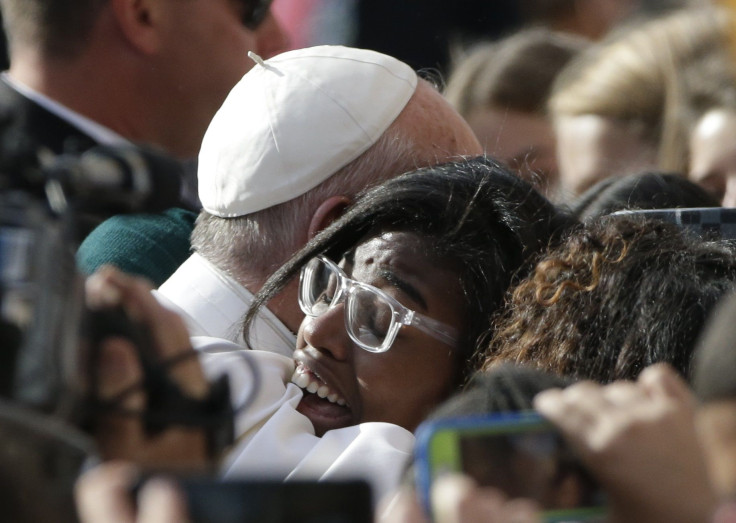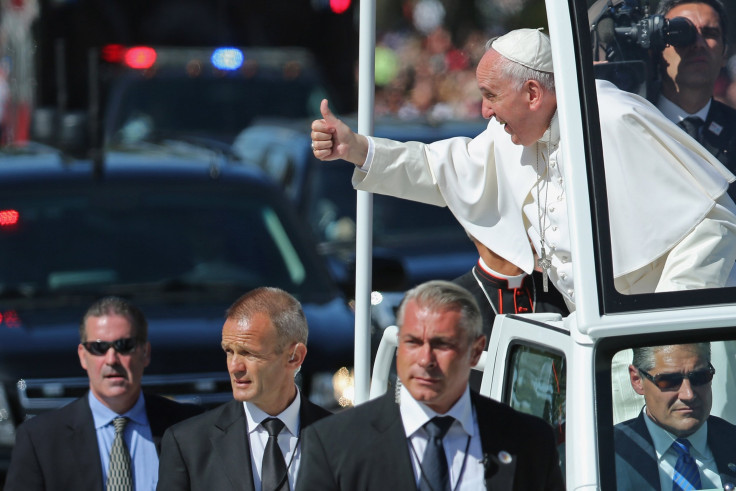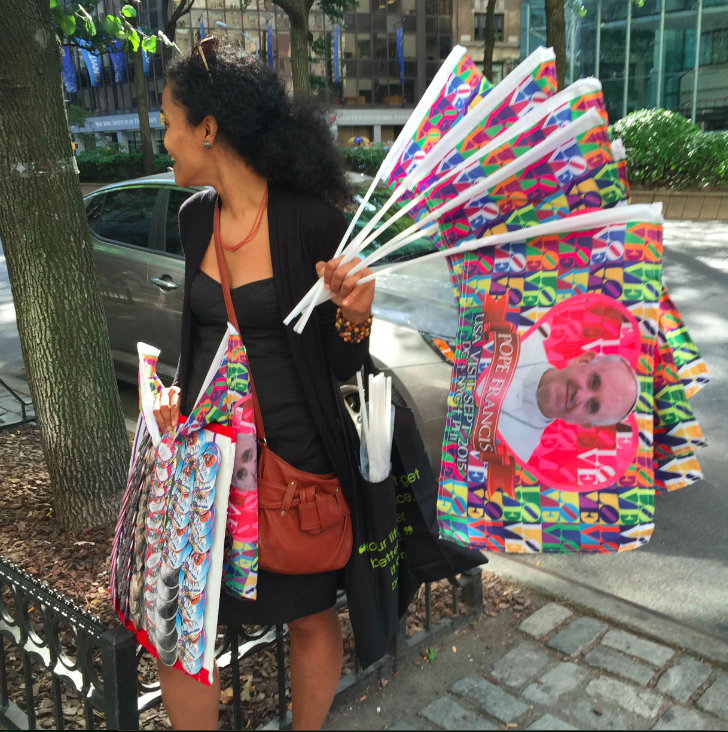Pope Francis Central Park Visit: Millennials Talk About His Effect On Catholicism

The hordes of people drawn to Central Park in New York City on Friday could have been confused for fans waiting for one of the world’s top celebrities. Barricades surrounded the park as police served as ushers, directing lucky ticketholders to stand at a predetermined spot. But the caution and organization wasn’t for a celebrity. It was for Pope Francis, the leader of the Roman Catholic Church. And while millennials might normally wait in line to see their favorite performer, they came to the streets of Manhattan on Friday to catch a glimpse of the Argentine-born pontiff.
For Kiera Edgett, an 18-year-old student from Atlanta, it was Francis’ overall message of peace and love that prompted her to enter the lottery for a chance to see the pope. “Even though I’m not Catholic, he’s made me want to be a better person,” she said. “He’s fun and everyone wants to hang out with the pope. He might even be able to get more young people go to church.”

Pope Francis’ worldwide popularity has captivated many millennials, a cohort of young adults who have been called the least religious generation in American history. While his predecessors have been seen as stern conservatives on social issues, Francis' comments like the famous "Who am I to judge?," his humility and relatability have made him a pope young people can embrace. And he’s the pope who is helping Catholic-raised millennials get in touch with their faith. Whether it’s attending Mass on Sunday, going to confession or just trying to be kinder over all, Francis has had an encouraging effect on America’s young adults, according to Catholics.

Maeve Griffin, 19, grew up Catholic, but said the church seemed antiquated before this pope. “It was like your parents’ religion, but now with Francis the Catholic Church is more inclusive,” she said. “He’s redeeming past sins of the church, like making up for people who used to be excluded,” she said, referencing the church's sexual abuse scandals in recent years and rejection of the gay community.
Before the pontiff was elected March 13, 2013, millennials were the generation who were the most unsure of their faith, according to a 2012 survey by the Pew Research Center’s Religion & Public Life Project. Millennials also had the highest amount of people who did not believe in God. More recently, 60 percent agreed with the following statement: “Pope Francis has renewed and strengthened my religious faith and commitment to the Catholic Church,” according to a 2014 online survey taken by Wall Street Journal.
Murray Lipp, a social worker from East Harlem, considers himself ex-Catholic, but he said Francis is taking the proper steps to make the church more welcoming. “There’s a less negative view of the Catholic Church,” the 39-year-old Lipp said. “He’s softened the church by making up for past errors.”

Francis began his historic trip to the U.S. when he arrived in Washington Tuesday. President Barack Obama and the first family welcomed him to the White House and the pontiff addressed Congress before he traveled to New York City Thursday. Pope Francis will end his tour in Philadelphia with a massive Catholic conference on families Saturday and Sunday.
Cathrin Wassur, 38, a paralegal originally from Germany, alluded to Francis' image as “the Cool Pope.” “He’s still going out for pizza,” she said. “He sees his job as a job. He wants to serve God and have fun.”
It’s possible the pontiff can help millennials become more religious, agreed Jason Silverman, 25. He grew up Jewish, but wanted to see the pope at Central Park Friday because of all the attention he’s received.
“Pope Francis is a positive role model,” he said, “and people are more willing to believe in a positive figurehead.”
Follow me on Twitter @mariamzzarella
© Copyright IBTimes 2025. All rights reserved.






















